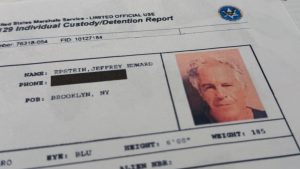Inside the secret AI program using fake personas to target suspects
Ella Greene April 21, 2025 0
In the 2002 film “Minority Report,” Tom Cruise plays a cop who uses futuristic technology to arrest people before they commit crimes. That concept — once the stuff of science fiction — may now be inching closer to reality.
Some U.S. law enforcement agencies are testing a highly secretive artificial intelligence tool called Overwatch. The system claims it can “detect and disrupt criminal activity across many verticals,” including border security, school safety and human trafficking.
But what sets Overwatch apart isn’t just its data analysis. It’s how the system embeds itself into conversations.
How police are using Overwatch
Developed by Massive Blue, a New York-based tech company, Overwatch uses AI to generate hyper-realistic digital personas—virtual undercover agents that infiltrate social media, messaging platforms and even encrypted apps like Signal.
These bots are designed to pose as activists, college protesters, or teenagers and engage directly with suspected traffickers and criminals. The goal is to build relationships with targets, gather intelligence, and support law enforcement in making arrests.
Examples from internal company presentations obtained by 404 Media include:
- A 36-year-old divorced woman involved in activism.
- A 14-year-old boy persona used to lure child traffickers.
- A 25-year-old “honeypot” persona — a woman of Yemeni descent from Dearborn, Michigan, programmed to speak a specific regional dialect of Arabic.
Real-world usage
Overwatch is already being used in active investigations. In Pinal County, Arizona, officials reportedly spent hundreds of thousands of dollars to deploy 50 AI personas, funded through an anti-human trafficking grant from the Arizona Department of Public Safety.
However, in Yuma County, Arizona, officials there chose not to renew a $10,000 contract with Massive Blue from 2023. A county spokesperson stated the technology “did not meet department needs.”
Privacy risks
So far, the results remain unclear. No publicly confirmed arrests have been tied to Overwatch. Critics point to a troubling lack of transparency around how the system operates—or whether it’s effective at all.
What’s more, some of the targets reportedly include vaguely defined protesters, not just criminal suspects. That has sparked growing concerns from civil liberties advocates, who warn that such broad targeting could pose significant risks to privacy, free expression and First Amendment protections.
Ella Rae Greene, Editor In Chief
Ella Greene
Ella and the staff at Clear Media Project (CMP) curate these articles.
Unless otherwise noted CMP does not write these articles.
The views, thoughts, and opinions expressed in the articles published on this blog belong solely to the original authors and do not necessarily reflect the views of the blog owner. The blog owner does not claim ownership of the content shared by contributors and is not responsible for any inaccuracies, errors, or omissions.
All rights and credits goes to its rightful owners. No Copyright Infringement is intended. If you believe any content infringes on your rights, please contact us for review and potential removal.





